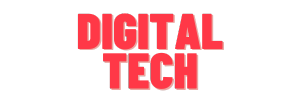Contents
Introduction
The phrase “Nnevelpappermann leaks” has recently emerged as a topic of significant interest, generating substantial attention and curiosity across various digital platforms. As a concept, “Nnevelpappermann leaks” reflects broader societal themes, including privacy, digital security, and the ethics surrounding the dissemination of information. This article delves deeply into these leaks, exploring their origins, implications, and the broader context in which they exist.
Understanding “Nnevelpappermann Leaks”
Origins of the Nnevelpappermann Leaks
The term “Nnevelpappermann leaks” refers to a series of unauthorized information disclosures associated with an individual or entity known as Nnevelpappermann. While the specific details and nature of these leaks can vary, they generally involve sensitive information that was not intended for public release.
These leaks have prompted discussions about the motivations behind such actions and the potential consequences for individuals, organizations, and society at large.
The Role of Digital Security in Modern Society
The digital age has transformed how information is stored, shared, and accessed. With this transformation comes an increased risk of data breaches and leaks. The “Nnevelpappermann leaks” serve as a reminder of the importance of robust digital security measures and the need for individuals and organizations to safeguard sensitive information against unauthorized access.
Motivations Behind the Leaks
Understanding the motivations behind the “Nnevelpappermann leaks” is crucial for comprehending their impact. These motivations can range from ethical considerations, such as whistleblowing, to malicious intent, such as hacking or espionage. By analyzing these motivations, we can better understand the complexities and ethical dilemmas surrounding information leaks.
Implications of the “Nnevelpappermann Leaks”
Impact on Privacy and Personal Security
The “Nnevelpappermann leaks” highlight the delicate balance between transparency and privacy. On one hand, leaks can expose wrongdoing and hold powerful entities accountable. On the other hand, they can also infringe upon individual privacy and compromise personal security. This section explores the potential consequences of leaks for individuals and the measures they can take to protect themselves.
Legal and Ethical Considerations
The legal and ethical dimensions of the “Nnevelpappermann leaks” are multifaceted and often contentious. While some leaks may be justified under the principles of transparency and public interest, others may violate laws or ethical standards. This section examines the legal frameworks governing information leaks and the ethical debates surrounding their legitimacy.
Influence on Public Discourse
The “Nnevelpappermann leaks” have sparked widespread public discourse on topics such as digital security, privacy rights, and the responsibilities of individuals and organizations in the digital age. This section explores how leaks can shape public opinion, influence policy decisions, and drive societal change.
Analyzing the Broader Context
Historical Precedents of Information Leaks
The phenomenon of information leaks is not new and has a long history that predates the digital era. From the Pentagon Papers to WikiLeaks, past incidents offer valuable insights into the motivations, challenges, and consequences of leaks. This section provides a historical overview of notable leaks and their impact on society.
The Role of Technology in Facilitating Leaks
Advancements in technology have made it easier to access, store, and share information, both legally and illegally. The “Nnevelpappermann leaks” exemplify how technology can be used to facilitate unauthorized disclosures and the need for technological solutions to address these challenges. This section examines the role of technology in modern leaks and the potential for innovation in digital security.
The Future of Information Security
As digital landscapes continue to evolve, so too do the threats and opportunities associated with information security. The “Nnevelpappermann leaks” underscore the importance of staying ahead of emerging threats and developing proactive strategies to protect sensitive information. This section explores future trends in information security and the potential for collaboration between individuals, organizations, and governments.
Strategies for Mitigating Information Leaks
Enhancing Digital Security Practices
Strengthening digital security practices is essential for preventing leaks and protecting sensitive information. This section offers practical tips and best practices for individuals and organizations to enhance their digital security posture and reduce the risk of unauthorized disclosures.
Balancing Transparency and Privacy
Achieving a balance between transparency and privacy is a complex but crucial task. This section explores strategies for fostering transparency while respecting individual privacy rights, including the use of anonymization techniques and ethical guidelines for information sharing.
Promoting Ethical Journalism and Whistleblowing
Journalism and whistleblowing play important roles in holding powerful entities accountable, but they must be conducted ethically and responsibly. This section examines the role of ethical journalism and whistleblowing in society and the need for protections for those who disclose information in the public interest.
Conclusion
The “Nnevelpappermann leaks” serve as a compelling case study in the complexities and challenges of the digital age. By examining these leaks in depth, we gain valuable insights into the dynamics of information security, privacy, and ethics. As we move forward, it is essential to continue exploring these issues and developing strategies that promote both transparency and security in our increasingly interconnected world.
FAQs
What are the “Nnevelpappermann leaks”?
The “Nnevelpappermann leaks” refer to a series of unauthorized disclosures of sensitive information associated with Nnevelpappermann. These leaks have raised significant concerns about digital security and privacy.
Why are the “Nnevelpappermann leaks” significant?
These leaks are significant because they highlight important issues surrounding digital security, privacy, and the ethical implications of information disclosure in the modern era.
What can individuals do to protect their information from leaks?
Individuals can protect their information by adopting strong digital security practices, such as using complex passwords, enabling two-factor authentication, and regularly updating software and systems.
How can organizations prevent information leaks?
Organizations can prevent information leaks by implementing comprehensive security protocols, conducting regular security audits, and fostering a culture of awareness and responsibility among employees.
What role does technology play in facilitating leaks?
Technology plays a dual role in facilitating leaks by enabling the storage and sharing of information and providing tools for unauthorized access and dissemination. Addressing this challenge requires ongoing innovation in digital security.
